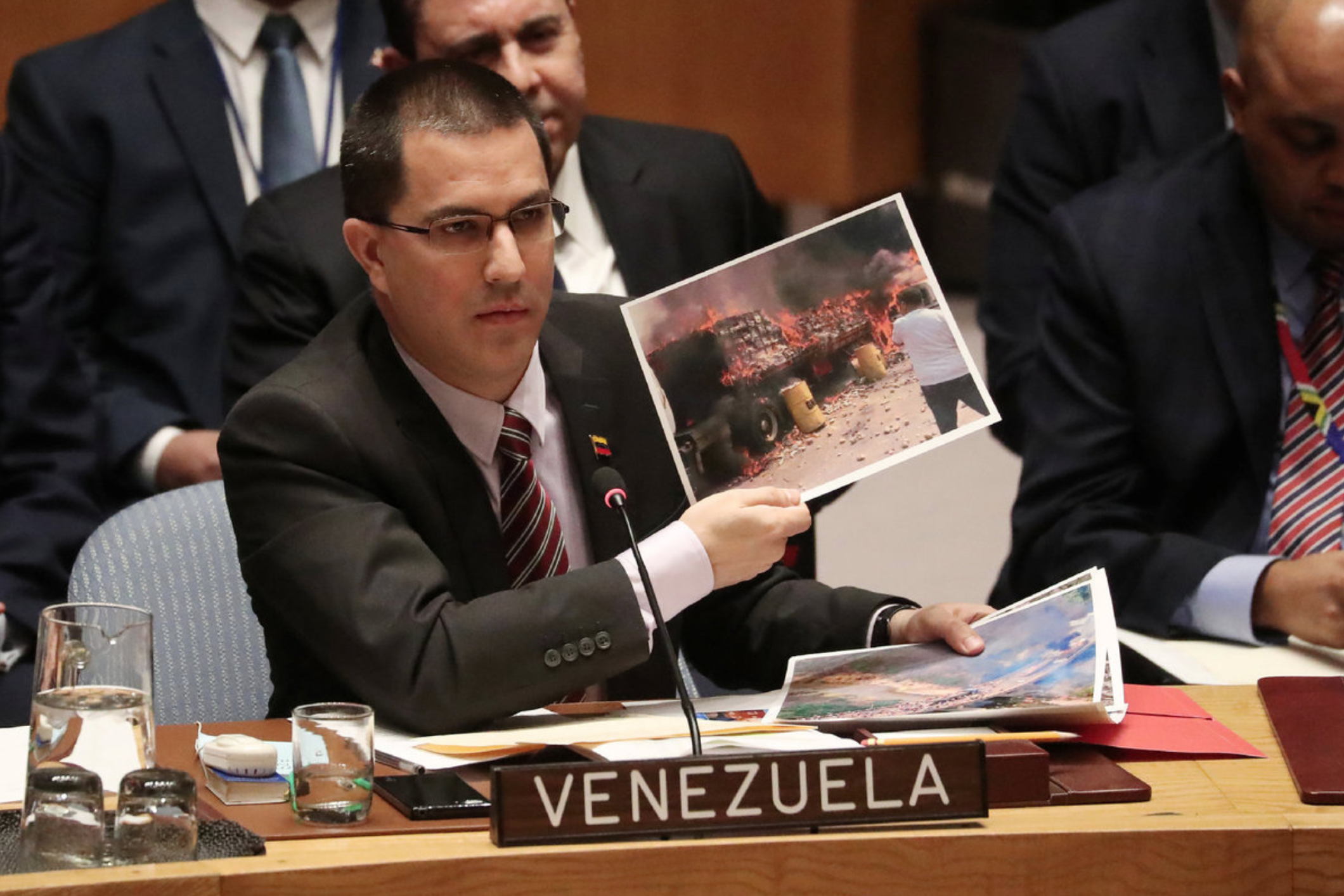U.S. intervention won’t resolve Venezuela crisis
The tense standoff in Venezuela between Nicolás Maduro and Juan Guaidó has morphed into something far larger than a contest for power between a failed leader still supported by parts of the army and die-hard leftists, and a young legislator propelled to the front by popular demonstrations.
The many interventions policies proposed by the different countries involved, in particular Russia and the U.S., has turned the Venezuelan crisis into a dangerous global power struggle. Recently, Alexander Shchetinin, the director of Russian Foreign Ministry’s Latin American Department, criticized US National Security Adviser John Bolton for suggesting tightened restrictions on Cuba for supporting Venezuelan President Nicolas Maduro. More importantly, the United States has not ruled out military intervention possibilities in Venezuela, due to the Trump administration’s all-in support for regime change.
These conflicts, along with the fact that the two separate resolutions moved by the US and Russia on the Venezuelan political crisis has failed to pass in the UN Security Council on February 28, show that Venezuela has become a pawn on the geopolitical chessboard of major powers that have high stakes in the political future of the country.
According to a report in The Wall Street Journal, which cited a senior administration official, the US promised it would back Guaido as part of a secret plan developed over several weeks. The US, along with Canada and several Latin American governments, quickly recognized Guaido as president, while China and Russia are backing Maduro. One spark could set off a civil war.
The US’ move to recognize Guaido is provocative. The problem is that the US has a track record of bullying Latin America and staging interventions in the region. These US interventions, both direct and indirect, have resulted in dozens of regime change over the course of more than a century. Even if Guaido proves successful in his bid for power, millions in Latin America and around the world will view Maduro’s overthrow as the latest case of US-led regime change.
The appointment of neoconservative Elliot Abrams on Friday as President Trump’s new special envoy for Venezuela just two days after Guaido declared himself the new leader will only fuel the charges. Abrams famously advocated for the armed support of Nicaraguan Contras and pleaded guilty to two misdemeanor counts of withholding information from Congress about secret efforts to arm the rebel forces—before he received a presidential pardon. Even if Guaido proves successful in gaining power, the view that the US once again helped to orchestrate regime change will embitter Venezuela and the region for years to come.
Featured Image- Venezuela Minister of Foreign Affairs Jorge Arreaza holds a picture while speaking during the United Nations Security Council meeting Photo courtesy of China Daily

